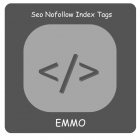Key SEO Terms You Need to Know: A Quick Overview

Key SEO Terms You Need to Know: A Quick Overview
Table of Contents
- What is SEO and Why Does It Matter?
- On-Page SEO: Optimizing Individual Pages
- Off-Page SEO: Building Authority and Trust
- The Importance of Keywords in SEO
- Understanding Meta Tags and Their Role
- Backlinks: Why They Matter for SEO
- How Page Speed Affects SEO Rankings
- The Role of Mobile Optimization in SEO
- Anchor Text
- Black Hat SEO
- Cloaking
- Crawler
- Money Keyword
- Nofollow
- Penalties
- Robots.txt
- SERPs
- Title Tag
- White Hat SEO
What is SEO and Why Does It Matter?
Search Engine Optimization (SEO) is the process of improving your website’s visibility on search engines like Google, Bing, or Yahoo. When users search for specific terms, SEO helps ensure your website appears in the search results. The goal is to increase organic (non-paid) traffic to your site by ranking higher for relevant keywords and phrases. But SEO isn't just about search engines—it’s about creating a better experience for your users. SEO matters because search engines are the primary way people find information online. Consider how often you use Google to look for answers, products, or services. Without SEO, your website may remain virtually invisible in this vast sea of online content.
On-Page SEO: Optimizing Individual Pages
On-page SEO focuses on optimizing the content and HTML source code of individual web pages to rank higher in search engines. This involves using proper heading structures, placing target keywords naturally in titles and body content, optimizing images with alt text, and ensuring a smooth user experience. It’s about making each page of your site relevant and easy to navigate for both users and search engines.
Tip
If you offer your SEO texts in several languages or localize them for different regions, your pages may be incorrectly classified as duplicate content. However, there is a simple solution to this in the form of hreflang. Our article explains what you need to bear in mind when using hreflang.
Read more about hreflangOff-Page SEO: Building Authority and Trust
Off-page SEO involves activities outside your website that impact its credibility and ranking. The main goal is to build trust and authority by earning backlinks from reputable websites, engaging in social media marketing, and encouraging brand mentions. Google uses these external signals to determine how trustworthy and relevant your site is, which can significantly influence your ranking.
The Importance of Keywords in SEO
Keywords are the foundation of SEO. They represent the phrases and terms people type into search engines. By understanding which keywords are relevant to your business, you can create content that directly addresses the needs of your audience. Keyword research helps you identify high-traffic terms, long-tail keywords, and opportunities to rank for queries that align with your business objectives. Using the right keywords boosts your chances of ranking higher in search results.
Understanding Meta Tags and Their Role
Meta tags are snippets of text that describe a page’s content and appear in the HTML code but are not visible on the page itself. Two key meta tags are the title tag and meta description. The title tag helps search engines understand what the page is about, while the meta description provides a brief summary that appears in search results. Well-crafted meta tags can improve your site’s click-through rate (CTR) by enticing users to visit your page.
Backlinks: Why They Matter for SEO
Backlinks, also known as inbound links, are links from other websites pointing to your site. They are a crucial ranking factor because they signal to search engines that your content is valuable and trustworthy. The more high-quality backlinks you have from authoritative sites, the more likely your site is to rank higher in search results. However, quality matters more than quantity—backlinks from spammy sites can harm your rankings.
How Page Speed Affects SEO Rankings
Page speed refers to how quickly your website loads, and it’s a direct ranking factor for Google. Slow-loading pages frustrate users, causing higher bounce rates, which can negatively impact your rankings. By optimizing images, reducing server response times, and utilizing browser caching, you can improve your site’s speed, resulting in better user experience and higher search engine rankings.
The Role of Mobile Optimization in SEO
With the majority of internet users accessing websites on mobile devices, mobile optimization is critical for SEO. Google uses mobile-first indexing, meaning it primarily looks at the mobile version of your site when determining rankings. Ensuring your website is mobile-friendly—responsive, fast, and easy to navigate—helps improve user experience and boosts your chances of ranking higher in search results.
Anchor Text
Anchor text, or link text, refers to the clickable text within a hyperlink on a webpage. Typically highlighted, when users click on it, they are directed to a specific target URL, which remains separate from the visible anchor text. Users see only the anchor text while the actual URL is embedded in the source code like this: anchor text In this case, visitors will only see the words "anchor text." In the context of SEO, anchor text can be categorized as follows: Branded Anchor Text: Contains the brand name or target domain. Money Anchor Text: Includes money-related keywords. Compound Anchor Text: A mix of both money keywords and brand names. Non-Money Non-Branded Anchor Text: Lacks any brand or money keywords, often appearing more natural than the other types. Examples include phrases like "read more information here" or "click here.".
Black Hat SEO
Black hat SEO refers to unethical practices in search engine optimization. The term is derived from Western films, where the villain typically wore a black hat, contrasting with the hero's white hat (related to white hat SEO). This type of SEO disregards search engine guidelines, such as those set by Google or Bing, often relying on spammy tactics and purchasing links from low-quality sites for link building. Engaging in these practices can result in your website being removed from search engine indexes.
Cloaking
Cloaking is an SEO method that search engines frown upon, as it misleads crawlers by showing different versions of a website. While the search engine's crawler accesses one version, actual visitors see an entirely different one. As a form of black hat SEO, cloaking is subject to penalties from search engines. To learn more about cloaking techniques and their implications, check out our detailed article.
Crawler
A web crawler, also known as a search bot or spider, automatically scans websites to analyze them based on certain criteria. This process is carried out independently, allowing search engines like Google to maintain their indexes by adding new sites, removing outdated ones, and updating existing entries.
Money Keyword
Money keywords are high-value search terms that attract significant attention due to their high search volumes (e.g., "buy shoes" or "cheap smartphones"). Many retailers aim to rank well for these keywords because appearing high in search results makes it easier for potential customers to find them. When users search for phrases like "buy shoes," they typically have a transaction-oriented intent, indicating they want to make a purchase but are unsure where. In search engine advertising, money keywords often command a high cost-per-click (CPC). Caution is advised when using these keywords, as overuse can lead to penalties from Google.
Nofollow
The nofollow attribute allows website owners to mark links they prefer Google not to index. This is done by adding rel="nofollow" next to the relevant link in the HTML code, instructing Google’s bot not to follow that link. Introduced in 2005, this attribute helps website owners manage links that are not editorially endorsed, curbing spam and manipulation of backlink profiles. Nofollow links are now considered part of a natural backlink profile and are included in SEO assessments.
Penalties
Google penalties are actions taken by Google to sanction a website for violating its guidelines. These penalties can be either manual or algorithmic and may result in reduced visibility or lower rankings in search engine results pages (SERPs).
Robots.txt
GThe robots.txt file informs search engines about which subdirectories should be indexed. It's important to note that it serves as a guideline for indexing and is located in the root directory of the domain.
SERPs
SERP stands for "Search Engine Results Page," where users are presented with results relevant to their search queries. These results, known as snippets, include a title, link, and meta description. The order of these results is determined by relevance, assessed by the search engine based on various ranking factors, such as user ratings, backlinks, and time spent on the site. The goal of all SEO efforts is to achieve a higher position in the SERPs.
Title Tag
The title tag indicates the title of a webpage, appearing in both the browser and Google search results. Users can access the site by clicking on the title. To enhance click-through rates, it’s crucial to use concise, informative wording. Each URL should have a unique title, ideally placing the keyword at the beginning.
White Hat SEO
White hat SEO is the ethical counterpart to black hat SEO. It strictly adheres to search engine guidelines and avoids spam tactics. A combination of both practices is known as grey hat SEO, which is commonly used in SEO strategies. Webmasters typically follow search engine guidelines but may occasionally interpret them flexibly or bend the rules.
| Key SEO Terms You Need to Know: A Quick Overview | |
|---|---|
| What is SEO and Why Does It Matter? | SEO, or Search Engine Optimization, is the process of optimizing your website to rank higher in search engine results, driving organic traffic and increasing visibility. |
| On-Page SEO: Optimizing Individual Pages | On-page SEO involves optimizing the content and HTML source code of individual pages, ensuring they are relevant, engaging, and easy for search engines to crawl. |
| Off-Page SEO: Building Authority and Trust | Off-page SEO focuses on actions outside your website, such as earning backlinks, that enhance its authority and trustworthiness in the eyes of search engines. |
| The Importance of Keywords in SEO | Keywords are the terms and phrases people search for. Using them strategically in your content helps your site rank for relevant searches and attract the right audience. |
| Understanding Meta Tags and Their Role | Meta tags, like the title tag and meta description, provide search engines with key information about your page, influencing click-through rates and rankings. |
| Backlinks: Why They Matter for SEO | Backlinks from reputable sites signal to search engines that your content is valuable, boosting your rankings and authority in search results. |
| How Page Speed Affects SEO Rankings | Page speed is a ranking factor. Faster-loading websites provide a better user experience, leading to higher engagement and improved search engine rankings. |
| The Role of Mobile Optimization in SEO | With mobile-first indexing, Google prioritizes mobile-friendly sites. Ensuring your site is optimized for mobile devices helps improve your SEO and user experience. |
FAQs
What is SEO and Why Does It Matter?
Search Engine Optimization (SEO) improves your website’s visibility on search engines like Google. SEO helps your site appear in search results when users search for relevant terms. The aim is to increase organic traffic by ranking higher for important keywords. SEO matters because it helps users find your content easily.
On-Page SEO: Optimizing Individual Pages
On-page SEO focuses on optimizing content and HTML on individual web pages to rank better. It involves using keywords naturally, optimizing headings, images with alt text, and ensuring a smooth user experience.
Off-Page SEO: Building Authority and Trust
Off-page SEO involves actions taken outside your website, like earning backlinks, social media marketing, and brand mentions. These help build credibility and authority, boosting your ranking on search engines.
The Importance of Keywords in SEO
Keywords represent the search terms people use. By understanding relevant keywords, you can create content that meets your audience’s needs and ranks higher in search results.
Understanding Meta Tags and Their Role
Meta tags like title tags and meta descriptions help search engines understand your content. Well-crafted meta tags improve your site’s visibility and click-through rates.
Backlinks: Why They Matter for SEO
Backlinks from other websites signal to search engines that your content is valuable. High-quality backlinks from authoritative sites can improve your rankings significantly.
How Page Speed Affects SEO Rankings
Page speed affects your SEO rankings. Faster pages provide a better user experience and are ranked higher by search engines. Optimize your site to load quickly for better performance.
The Role of Mobile Optimization in SEO
With most users on mobile devices, optimizing your site for mobile is essential. Google uses mobile-first indexing, meaning mobile-friendly sites rank higher.










